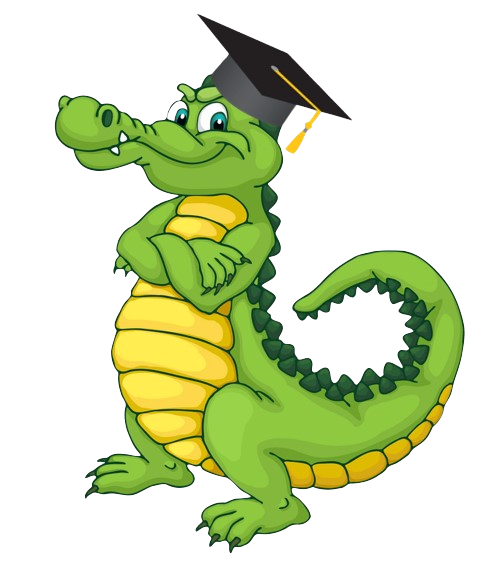Information
the individuals with disabilities education act ("IDEA")
The IDEA is a comprehensive statutory framework established by Congress to aid the states in providing disabled children with a free appropriate public education (“FAPE”). 20 U.S.C. § 612(a)(I). “A [FAPE] is available to all children with disabilities residing in the state between the ages of 3 and 21.” 20 U.S.C. § 612(a)(1)(A). The IDEA defines a FAPE as special education and related services that:
(A) have been provided at public expense, under public supervision and direction, and without charge,
(B) meet the standards of the state educational agency,
(C) include an appropriate preschool, elementary, or secondary school education in the state involved, and
(D) are provided in conformity with the individualized education program required under § 614(d) of this title. 20 U.S.C. § 601(9).[1]
A FAPE is crafted through the collaboration of the disabled student’s parents, teachers, and school district administrators and is recorded in an IEP. 20 U.S.C. § 614(d). The “core of the statute … is the cooperative process that [IDEA] establishes between parents and schools.” Schaffer v. Weast, 546 U.S. 49, 53 (2005). The IEP is, in brief, a comprehensive statement of the educational needs of a disabled child and the specially designed instruction and related services to be employed to meet those needs. 20 U.S.C. § 601(14). In New York State, the IEP is produced by a committee on special education (“CSE”), whose members are appointed by the board of education or trustees of the school district. N.Y. Educ. Law § 4402(1)(b)(1) (McKinney Supp. 2005).
The IDEA provides numerous procedural safeguards to protect the due process rights of disabled children and their parents. See generally, 20 U.S.C. § 615. These procedures include the opportunity for parents to obtain an IEE of the child (20 U.S.C. § 615(b)(I)) and file a complaint with the state or local educational agency (20 U.S.C. § 615(b)(6)). Any such complaint is resolved through an “impartial due process hearing” in which parents of disabled children have “an opportunity to present complaints with respect to any matter relating to the identification, evaluation, or educational placement of the child, or the provision of a [FAPE] to such child.” 20 U.S.C. § 615(b)(6). Parties to an administrative proceeding under the IDEA have the right to written findings of fact and decisions on any complaint about the provision of a FAPE. Polera v. Board of Education Newburgh, 288 F.3d 478, 482 (2nd Cir. 2002).
[1] “Special education” is defined by the IDEA as specially designed instruction, at no cost to parents or guardians, to meet the unique needs of a child with a disability, including (A) instruction conducted in the classroom, in the home, in hospitals and institutions, and in other settings; and (B) instruction in physical education.
The term “related services” is defined as transportation, and such developmental, corrective, and other supportive services (including speech pathology and audiology, psychological services, physical and occupational therapy, recreation, including therapeutic recreation, social work services, counseling services, including rehabilitation counseling, and medical services, except that such medical services shall be for diagnostic and evaluation purposes only) as may be required to assist a child with a disability to benefit from special education, and includes the early identification and assessment of disabling conditions in children. 20 U.S.C. § 601(26).
The New York State Education Laws
In New York State, “[t]he board of education or trustees of the school district or the state agency responsible for providing education to students with disabilities shall have the burden of proof, including the burden of persuasion and burden of production, in any such impartial hearing …” N.Y. Educ. Law § 4404 (1)(c), modifying the rule enunciated in Schaffer where “[t]he burden of persuasion in an administrative hearing challenging an IEP is on the party seeking relief.” Schaffer, 546 U.S. at 537.
KEY TERMS
Here are some common terms in the special ed world:
- Academic Intervention Services ("AIS")
- Applied Behavioral Analysis ("ABA")
- Assistive Technology ("AT")
- Behavioral Intervention Plan ("BIP")
- Board Certified Behavior Analyst ("BCBA")
- Committee on Special Education ("CSE")
- Compensatory Education ("Comp. Ed.")
- Committee on Preschool Special Education ("CSPE")
- Due Process Complaint ("DPC")
- Extended School Year ("ESY")
- Free Appropriate Public Education ("FAPE")
- Functional Behavioral Assessment ("FBA")
- Individuals with Disabilities Education Act ("IDEA")
- Impartial Hearing Officer ("IHO")
- Independent Educational Education ("IEE")
- Individualized Education Services Program ("IESP")
- Individualized Education Plan ("IEP")
- Least Restrictive Environment ("LRE")
- Prior Written Notice ("PWN")
- Related Services Authorization ("RSA")
- School Location Letter ("SLL")
- Special Education Teacher Support Services ("SETSS")
- State Review Office ("SRO")
- Supplementary Aids and Services
- Ten-Day Notice ("TDN")
- Transition Services

CLASSIFICATIONS
According to 8 NYCRR Part 200.1(zz), a student with a disability means a student with a disability as defined in section 4401(1) of the Education Law, who has not attained the age of 21 prior to September 1st and who is entitled to attend public schools pursuant to section 3202 of the Education Law and who, because of mental, physical or emotional reasons, has been identified as having a disability and who requires special services and programs approved by the department. The terms used in this definition are defined as follows:
- (1) Autism means a developmental disability significantly affecting verbal and nonverbal communication and social interaction, generally evident before age 3, that adversely affects a student’s educational performance. Other characteristics often associated with autism are engagement in repetitive activities and stereotyped movements, resistance to environmental change or change in daily routines, and unusual responses to sensory experiences. The term does not apply if a student's educational performance is adversely affected primarily because the student has an emotional disturbance as defined in paragraph (4) of this subdivision. A student who manifests the characteristics of autism after age 3 could be diagnosed as having autism if the criteria in this paragraph are otherwise satisfied.
-
(2) Deafness means a hearing impairment that is so severe that the student is impaired in processing linguistic information through hearing, with or without amplification, that adversely affects a student’s educational performance. -
(3) Deaf-blindness means concomitant hearing and visual impairments, the combination of which causes such severe communication and other developmental and educational needs that they cannot be accommodated in special education programs solely for students with deafness or students with blindness. -
(4) Emotional disturbance means a condition exhibiting one or more of the following characteristics over a long period of time and to a marked degree that adversely affects a student’s educational performance: (i) an inability to learn that cannot be explained by intellectual, sensory, or health factors. (ii) an inability to build or maintain satisfactory interpersonal relationships with peers and teachers; (iii) inappropriate types of behavior or feelings under normal circumstances; 15 200.1 (iv) a generally pervasive mood of unhappiness or depression; or (v) a tendency to develop physical symptoms or fears associated with personal or school problems. The term includes schizophrenia. The term does not apply to students who are socially maladjusted, unless it is determined that they have an emotional disturbance. -
(5) Hearing impairment means an impairment in hearing, whether permanent or fluctuating, that adversely affects the child's educational performance but that is not included under the definition of deafness in this section. -
(6) Learning disability means a disorder in one or more of the basic psychological processes involved in understanding or in using language, spoken or written, which manifests itself in an imperfect ability to listen, think, speak, read, write, spell, or to do mathematical calculations, as determined in accordance with section 200.4(j) of this Part. The term includes such conditions as perceptual disabilities, brain injury, minimal brain dysfunction, dyslexia and developmental aphasia. The term does not include learning problems that are primarily the result of visual, hearing or motor disabilities, of an intellectual disability, of emotional disturbance, or of environmental, cultural or economic disadvantage. -
(7) Intellectual disability means significantly subaverage general intellectual functioning, existing concurrently with deficits in adaptive behavior and manifested during the developmental period, that adversely affects a student’s educational performance. -
(8) Multiple disabilities means concomitant impairments (such as intellectual disability-blindness, intellectual disability-orthopedic impairment, etc.), the combination of which cause such severe educational needs that they cannot be accommodated in a special education program solely for one of the impairments. The term does not include deaf-blindness. -
(9) Orthopedic impairment means a severe orthopedic impairment that adversely affects a student's educational performance. The term includes impairments caused by congenital anomaly (e.g., clubfoot, absence of some member, etc.), impairments caused by disease (e.g., poliomyelitis, bone tuberculosis, etc.), and impairments from other causes (e.g., cerebral palsy, amputation, and fractures or burns which cause contractures). -
(10) Other health-impairment means having limited strength, vitality or alertness, including a heightened alertness to environmental stimuli, that results in limited alertness with respect to the educational environment, that is due to chronic or acute health problems, including but not limited to a heart condition, tuberculosis, rheumatic fever, nephritis, asthma, sickle cell anemia, hemophilia, epilepsy, lead poisoning, leukemia, diabetes, attention deficit disorder or attention deficit hyperactivity disorder or Tourette syndrome, which adversely affects a student's educational performance. -
(11) Speech or language impairment means a communication disorder, such as stuttering, impaired articulation, a language impairment or a voice impairment, that adversely affects a student's educational performance. - (12) Traumatic brain injury means an acquired injury to the brain caused by an external physical force or by certain medical conditions such as stroke, encephalitis, aneurysm, anoxia or brain tumors with resulting impairments that adversely affect educational performance. The term includes open or closed head injuries or brain injuries from certain medical conditions resulting in mild, moderate or severe impairments in one or more areas, including cognition, language, memory, attention, reasoning, abstract thinking, judgement, problem solving, sensory, perceptual and motor abilities, psychosocial behavior, physical functions, information processing, and speech. The term does not include injuries that are congenital or caused by birth trauma.
-
(13) Visual impairment including blindness means an impairment in vision that, even with correction, adversely affects a student's educational performance. The term includes both partial sight and blindness.
